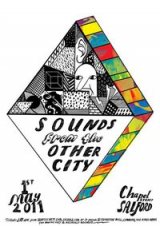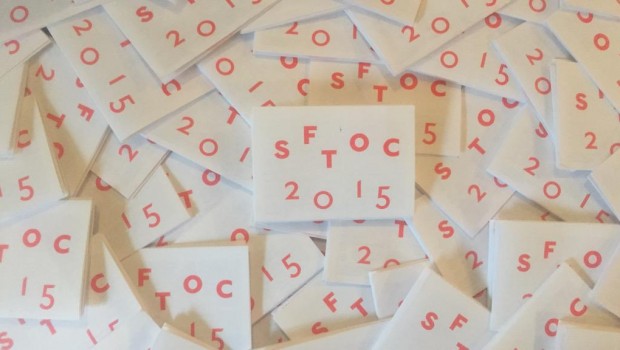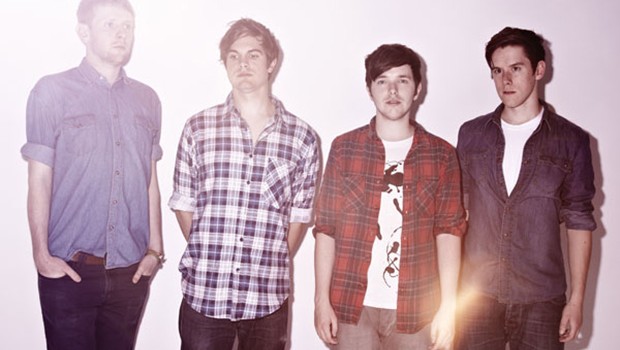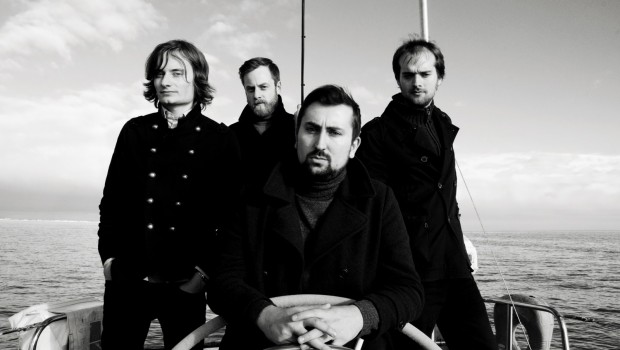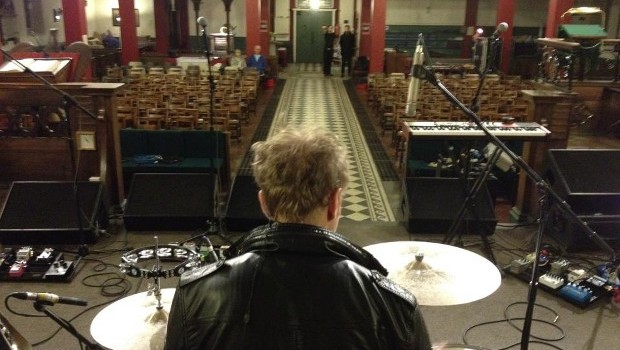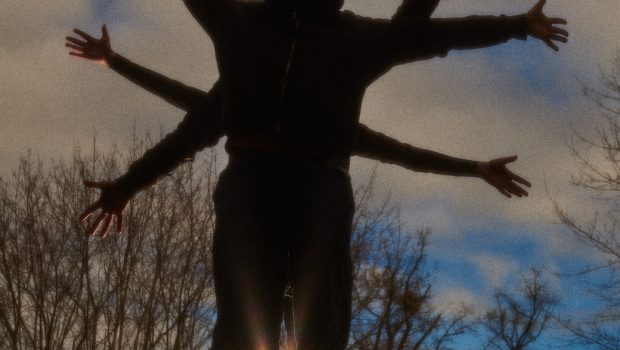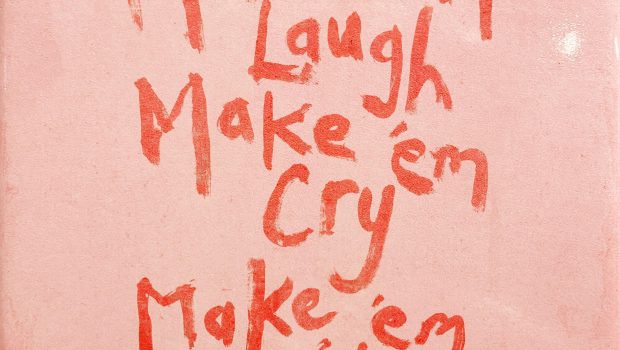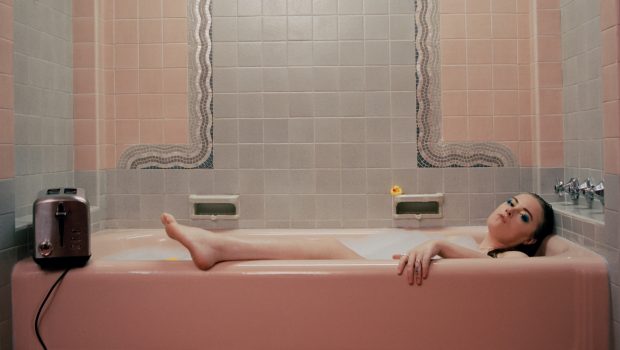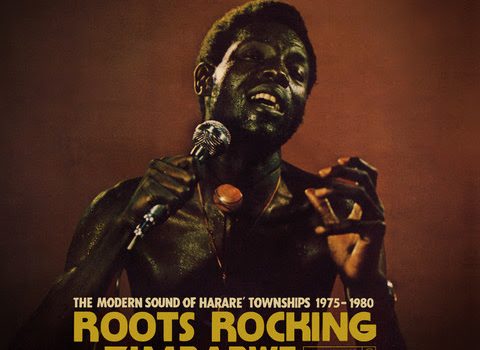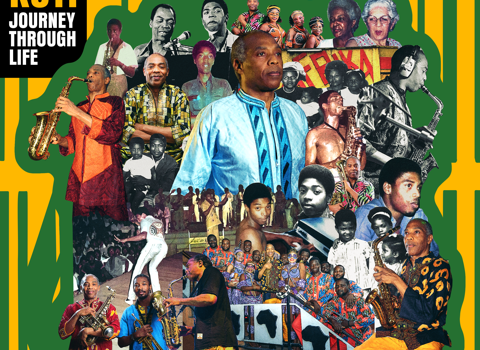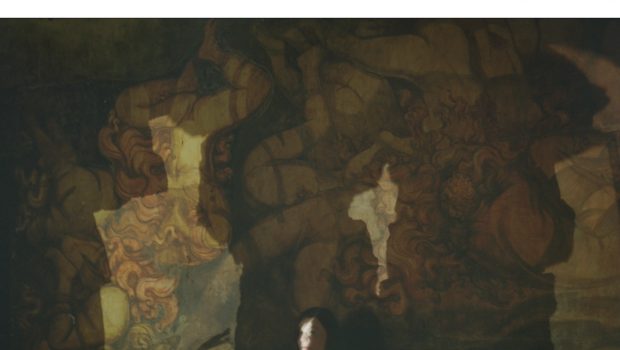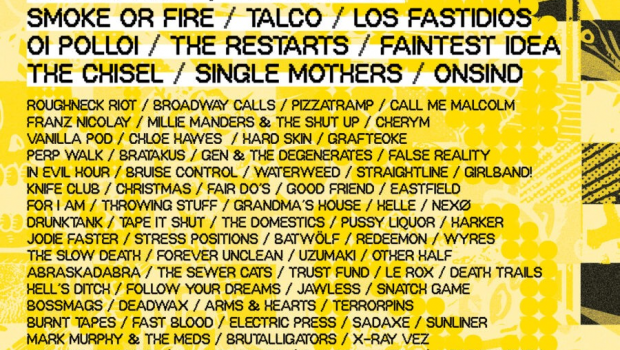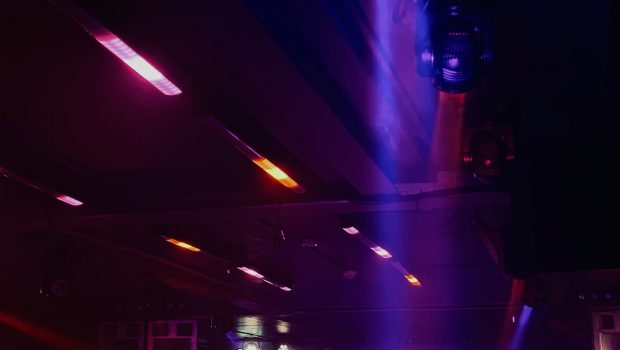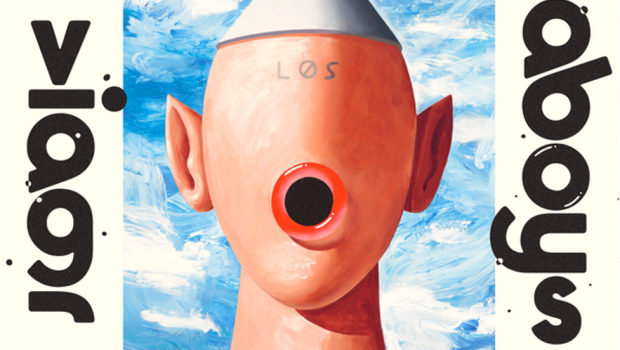Silent Radio believes just one person covering SFTOC is quite simply just not enough, so this year we send two of our finest to take in Salford’s Chapel Street all day non-stop music event.
Review #1:
It’s not often that everything stops for the sake of creativity in Salford and the city is given the chance to lord it over neighbouring Manchester, but Sounds From the Other City is certainly one of these occasions.
Marking its seventh year, any disbelief in its success dissolved long ago and the one-day event now has the clout to attract some truly great artists.
This year’s instalment boasts a particularly attractive line-up for the north’s notoriously choosy music lovers, with the likes of Sonny and the Sunsets, Rainbow Arabia, Those Dancing Days, Veronica Falls and Brown Brogues on the bill. Even the sun joined in – a well-known rarity in this neck of the woods.
Islington Mill, the hub of the action, does consistently well for itself throughout the day, with queues forming to collect wristbands, people gathering in the courtyard to enjoy the sun, art work on show, food and official t-shirts being created on-spot for the event.
Although the action officially begins at 3pm, only a handful of venues have acts on around this time as people get wristbanded and bag their first pints of the afternoon.
Over at The Crescent, one of Salford’s most-loved and charismatic watering holes, the SFTOC action kicks off at 4:30pm with local four-piece Sandbox, whose drummer is in Hong Kong, leaving them one man down.
This may have turned out to be a blessing in disguise as the back room of the bar is treated to the unadulterated tones of frontwoman Lennie Butler, who boasts a pair of lungs that could knock an eagle off a cliff edge from the ground. The band’s songs have a personal touch that locals can appreciate with tracks such as ‘Piccaddilly and I’, as Ms Butler happily chats to her laid-back audience between songs.
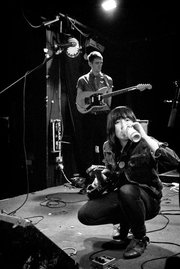 Tempted by the smell of burgers and hot dogs over at the Old Pint Pot, the pub’s upstairs level sets things in motion with a set from The Louche FC, who go for a fifties-esque, almost indiscernible echo-ey vocal in a dreamy nod to the likes of Best Coast.
Tempted by the smell of burgers and hot dogs over at the Old Pint Pot, the pub’s upstairs level sets things in motion with a set from The Louche FC, who go for a fifties-esque, almost indiscernible echo-ey vocal in a dreamy nod to the likes of Best Coast.
However, lacking banter, interaction with the crowd and even smiles, the four-piece has some work to do when it comes to honing their onstage presence and engaging audiences.
Over the way at the Angel, a fully working kitchen scented with jacket potatoes and chickpeas, WODE take to the stage as part of the Paradox-curated line-up and throw a bit of delightful confusion into the middle of the day.
Although the band comprises of a guitarist and drummer, this couldn’t be further from White Stripes territory as the floppy-haired frontman roars indiscernible vocals through the mic and sears the heart of the little cafe’s bricks.
Following a request to the tech guy from the well-informed audience to give it more guitar, the sound seems a little better balanced and the pair’s stunning abilities with their instruments receive a perfect platform. Metal isn’t the most popular of genres in these indie-heavy times, but WODE do a good job of getting people interested in their unique sound.
Following streams of people usually leads to a pot of gold, and this works a treat at 6:30, as the general consensus is to head over to Peel Hall for Willy Mason, one of the best-known names on the bill this year.
The seated venue is packed out, but a bit of squeezing by the door fellows sees most people are granted entry to catch part of the New York-born singer-songwriter’s set.
Some musicians find themselves gifted with a brilliant voice and let it lead the way, but although the first half is true of Willy Mason, the man is clearly ignoring the laurels to continue forging his own brand of aching, sensual country-blues tracks.
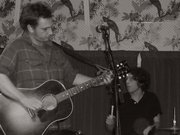 His thoughtful lyrics and luscious acoustic strums attest to his all-round talents as a prolific artist as Mason commands a mesmerised, statue-still audience who happily absorb his soothing vocals on tracks such as ‘Restless Fugitive’ and ‘Hard Hand to Hold’.
His thoughtful lyrics and luscious acoustic strums attest to his all-round talents as a prolific artist as Mason commands a mesmerised, statue-still audience who happily absorb his soothing vocals on tracks such as ‘Restless Fugitive’ and ‘Hard Hand to Hold’.
As for the velvet-curtained high-windowed venue, Mason says it best himself. “Well, your lecture theatres are a lot grander than ours.”
After the set, stopping for a beer break before heading off to Sonny and the Sunsets at the King’s Arms seems to be a popular choice. However, as I have a Primavera Sound ticket in the bank for late May, I opt to pop back over to the gregarious Crescent to catch Death to the Strange.
The back room of the bar proves itself to be a venue with a heart as crowds shuffle forward to allow more people in and the easy-going atmosphere equals a harmonious, cheery audience.
Despite being five young energetic chaps with a run-of-the-mill indie look about them, Death to the Strange are, in fact, a little bit surreal. The well-executed vocal work is divided between the band’s two guitarists Daniel Clarke and John Lowndes, with some echoey narrative occasionally added to the proceedings. If an award existed for most the spirited, lively keyboard player of the day, the band’s Rob Sewell would surely bag it.
Sensing the neglect of the other end of Chapel Street, it’s time to head up to the Salford Arms to see the intriguingly named From The Kites of San Quentin, playing as part of north-west record label Mind on Fire’s line-up.
An integral venue of the festival, sitting on the edge of Manchester and Salford, the bar and beer garden are bustling and, even better, offering up some great Tibetan food from a kitchen hatch.
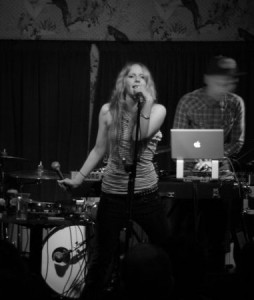 From the Kites of San Quentin mark the mid-evening crossover between bands and DJ decks, as the trio usher in a dancey, electro-centred vibe.
From the Kites of San Quentin mark the mid-evening crossover between bands and DJ decks, as the trio usher in a dancey, electro-centred vibe.
Frontwoman Alison Carney’s Coco Rosie-ish vocals are layered over gently tribal beats as the band establish a soaring groove in the Salford Arms before the night sets in.
A few blocks away at Sacred Trinity, one of the acts recommended by the festival’s organisers transforms the little church on the edge of city into a cutting-edge house of exploration and experimentation.
Barn Owl, a duo hailing from San Francisco, speak with each note they carefully play on their guitars, drowning the room in a much-welcomed ambient mood.
The whole back wall of the church is claimed by a projected silent film, with images of forests and monotone shapes dominating as the room glows with an eerie but relaxing green light.
Calling themselves masters of ‘drone’ music, this pair bonded over their fondness for the metal genre and teamed up to make atmospheric, ‘meditative’ music. Maybe it’s a rare combination of the right place, the right time and a perfect performance, but it feels almost impossible to leave the room tonight while Barn Owl are doing their stuff.
It’s almost a subjective Rorschach experimentation, with each individual – sitting either in pews or on the floor – quietly mesmerised by the performance. The music perfectly complements the visuals, lulling several sleepy observers into a doze as they rest between the 3pm start and the evening sessions.
Almost an hour slips by as time plays second fiddle to Barn Owl’s incredibly emotive, stunningly ethereal, intricately crafted art.
As the clock edges towards 10pm, High Voltage starts to wrap up its residency at St Philip’s Church, as the holy venue finds itself invaded by Glasgow’s The Twilight Sad.
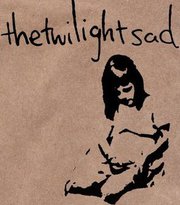 Despite leaving a tantalisingly long time between releasing their second album and most recent EP and dealing with the bowing-out of their original bass player, the band have lost none of their spirit and their following is one of the strongest of the festival.
Despite leaving a tantalisingly long time between releasing their second album and most recent EP and dealing with the bowing-out of their original bass player, the band have lost none of their spirit and their following is one of the strongest of the festival.
Highlights of the set include recent track ‘The Wrong Car’, which indicates that the boys are still on top form, and a singalong to ‘Cold Days from the Birdhouse’ from the band’s 2008 gateway EP ‘Here it Never Snowed, Afterwards it Did’.
It’s not often that church rafters in Salford resound with hundreds of half-drunk people shouting “But this is where your arm can’t go…”. Tonight, The Twilight Sad highlight why SFTOC is such a unique event, as settings are transformed from functional into artistic spaces.
Across the road, the lights of Islington Mill beam out across Salford as the celebrations are set to continue into the early hours.
Running over schedule, Brooklyn DJ duo Creep dominate the stage way beyond 11pm, romancing the growing crowds in the mill with their concoction of projected films and hypnotic house.
Meanwhile, the venue provides the perfect backdrop to Now Wave’s choice of musicians, which is wrapped up with the much-raved-about D/R/U/G/S as tired, tipsy and merry festival-goers wander in and out of the cosy courtyard and stony old corridors of the festival’s hub.
As the clock hits half midnight, things get elite at the mill as the doors close to incomers, much to the anger of musicians trying to prove their ID and a queue of cold wristband-holders waiting outside.
The Old Pint Pot, however, is still entertaining SFTOC’s hardcore refugees as the night closes on a positive and lively note.
If Sounds From the Other City gets better every year, as evidence suggests and the organisers claim, then a pass to 2012’s event is a unmissable purchase.
Folks at a loose end next May Bank Holiday and even those who already have plans should consider clearing their diaries for Sounds from the Other City – a not-so-underdog festival that carefully gleans local and international talent and fits it all into Salford’s finest settings.
